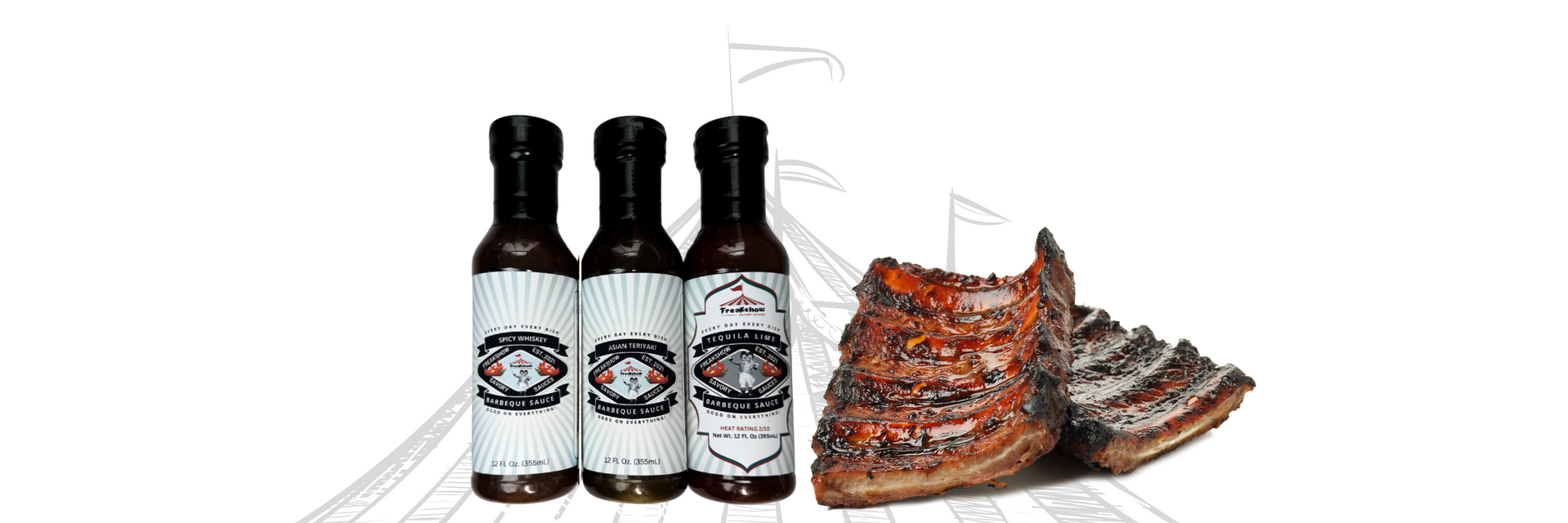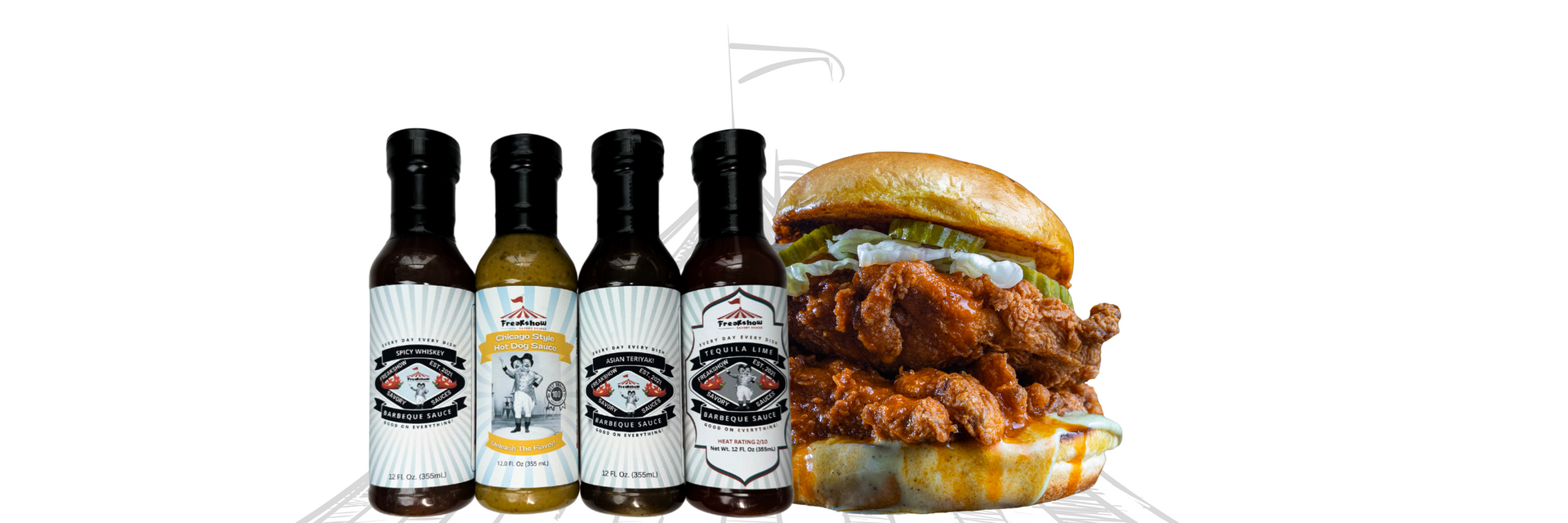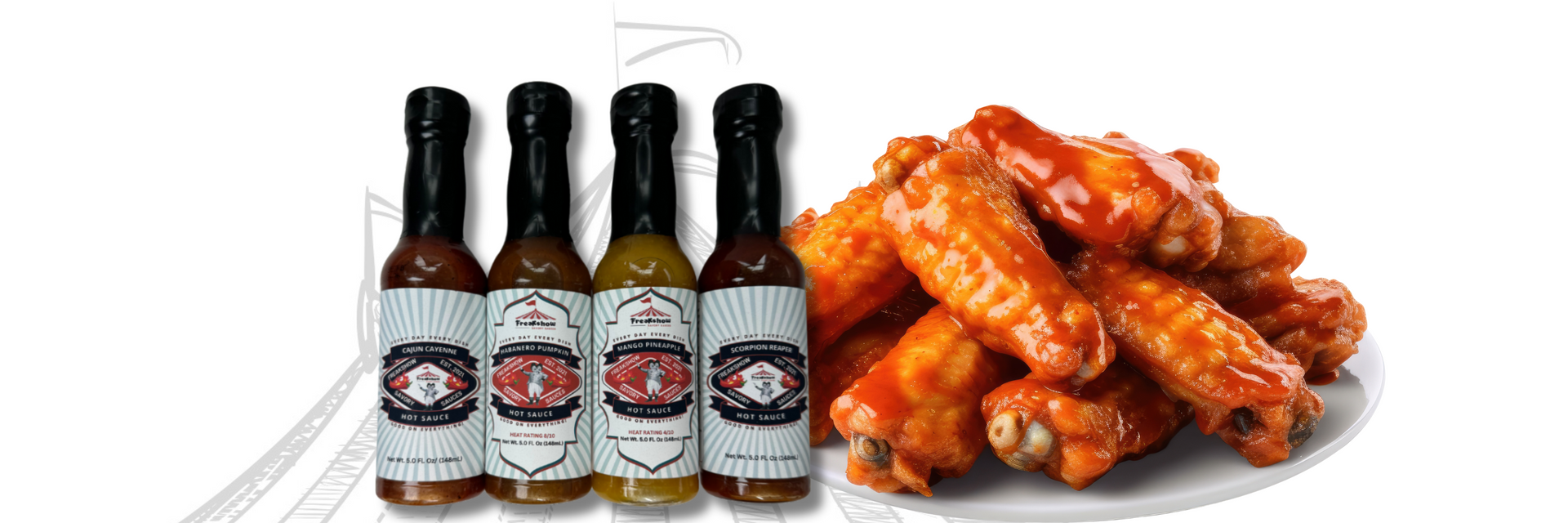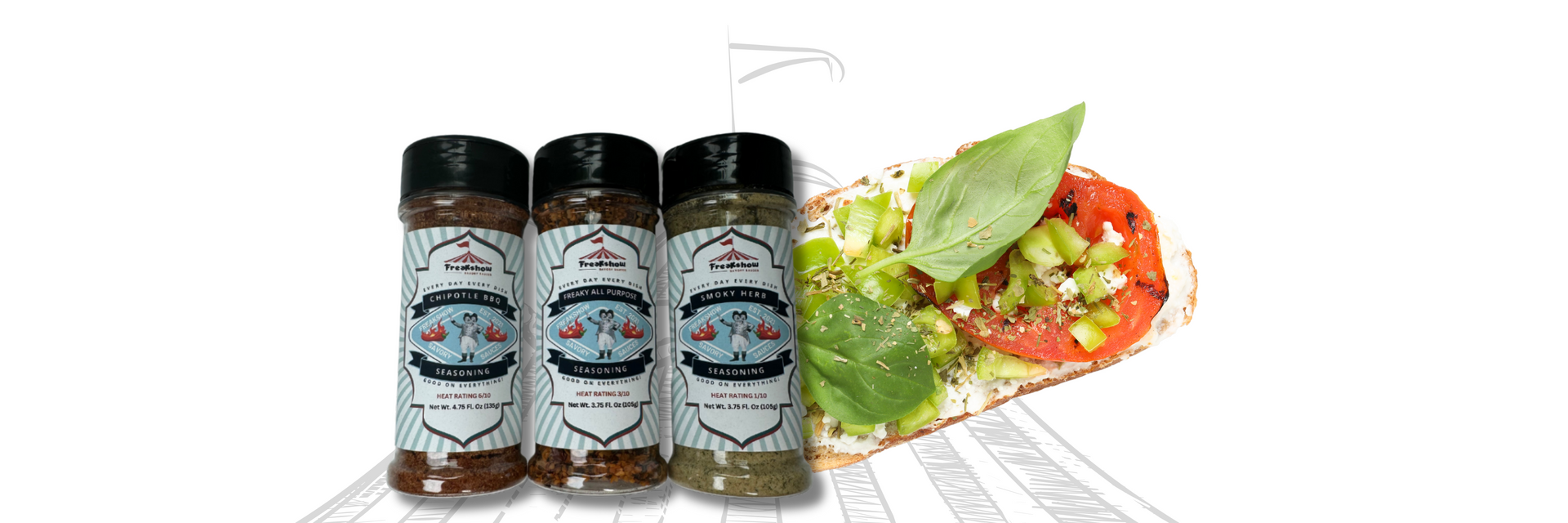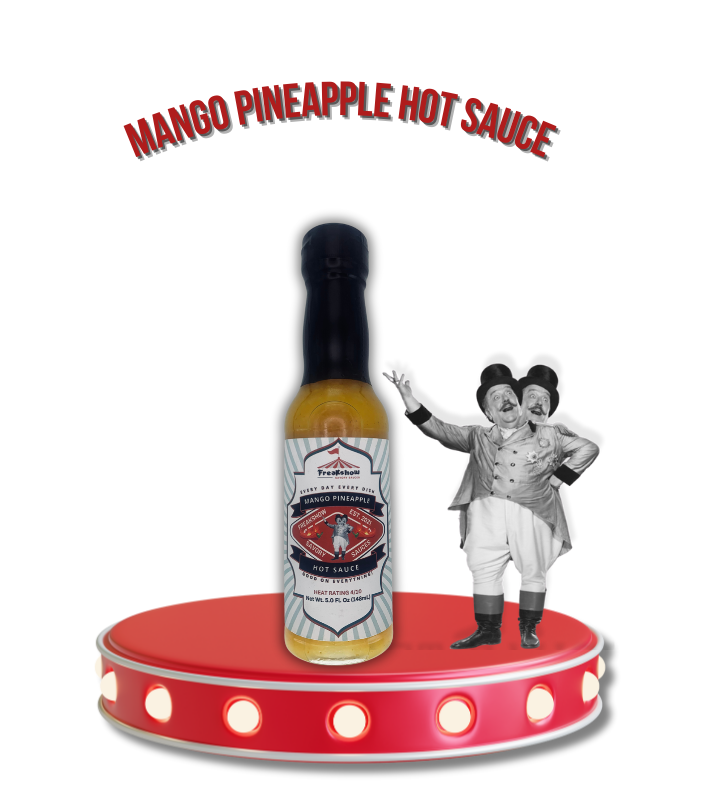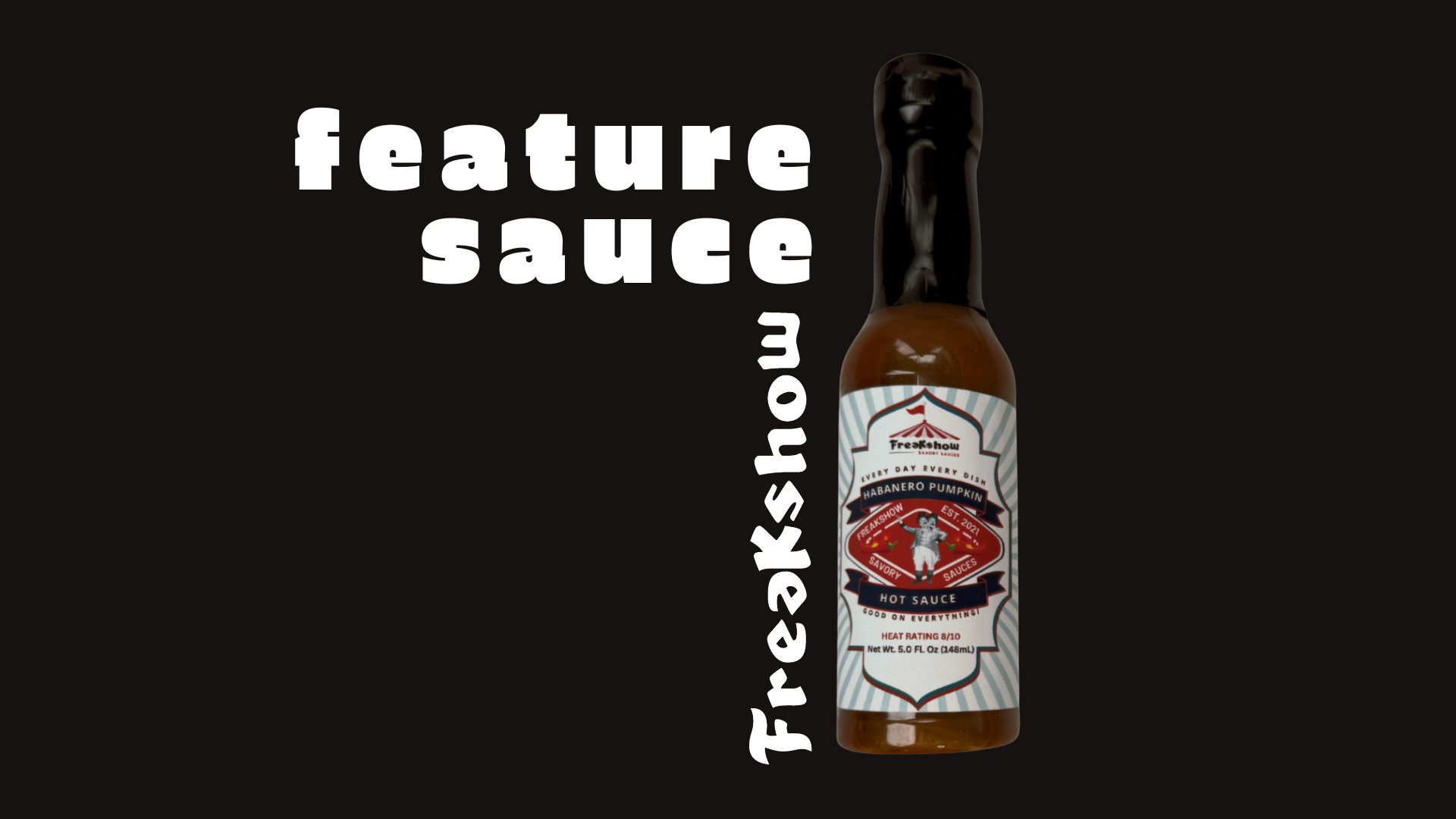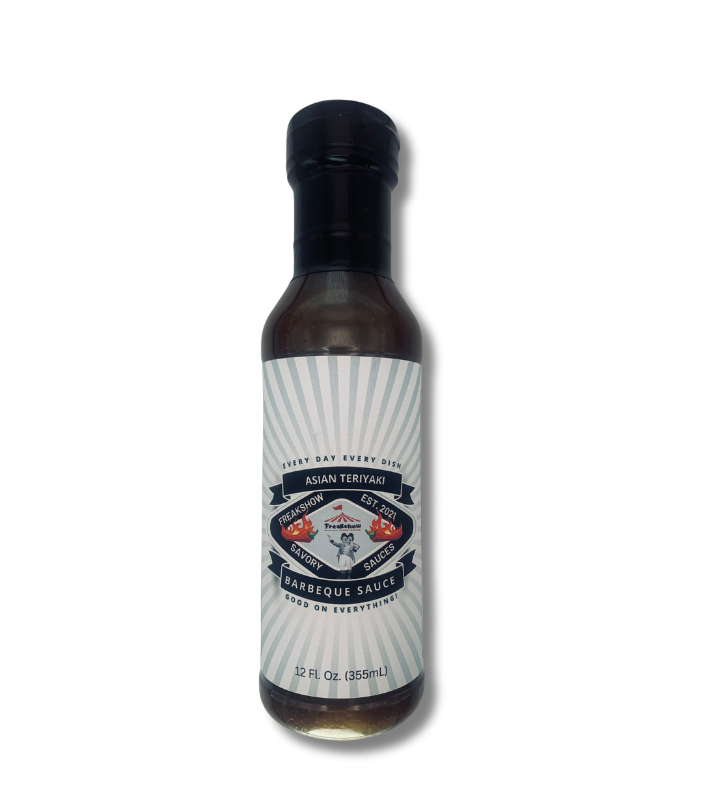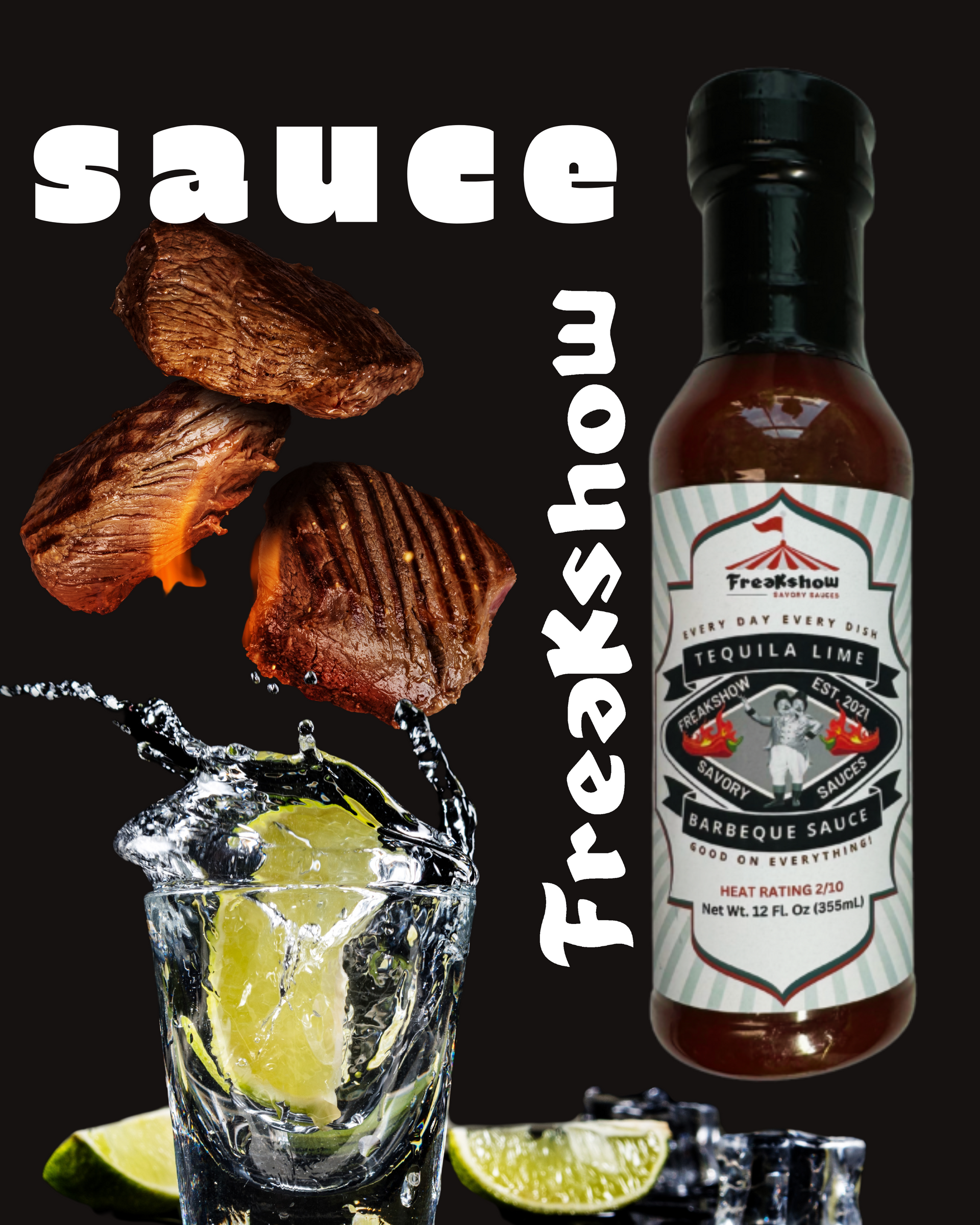Spice Up Your Plant Based Diet with Hot Sauce
Shelly Bouse • March 6, 2025
Hot Sauce on the Plant Based Diet
Are there any potential nutrient deficiencies to be aware of on a plant-based diet?
While plant-based diets are generally rich in nutrients, deficiencies can occur if not well-balanced. Common ones include vitamin B12, iron, calcium, omega-3 fatty acids, and zinc. It’s important to plan meals carefully or consider supplements to ensure all necessary nutrients are obtained.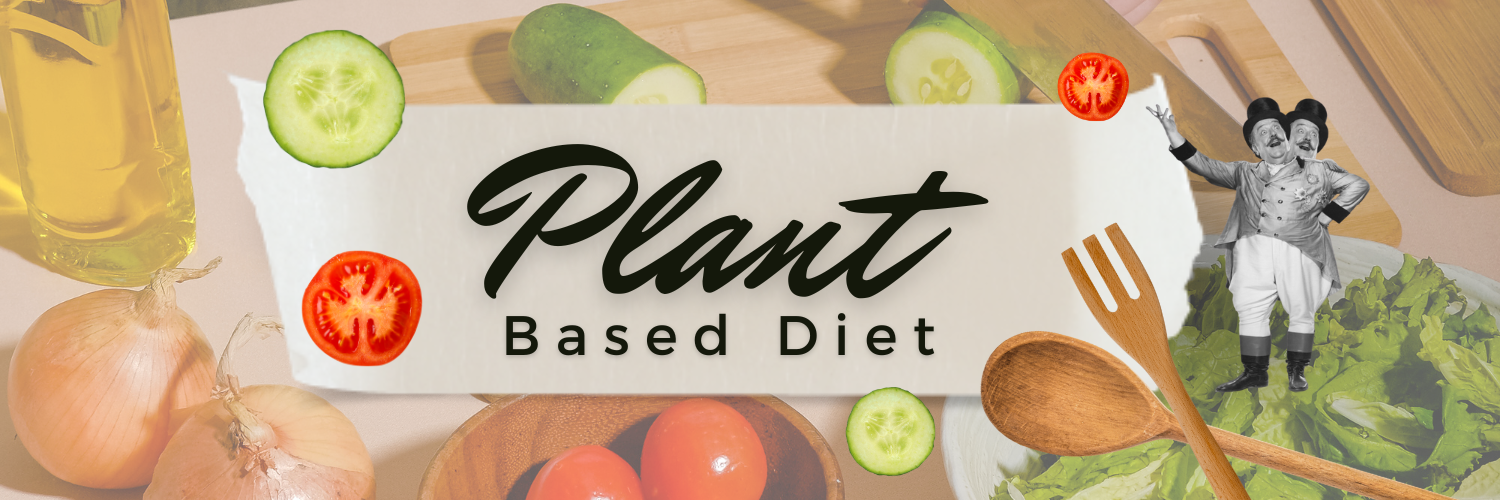
Key Highlights
- Incorporating hot sauce into a plant-based diet can offer numerous health benefits, including weight loss and lower blood pressure.
- Contrary to common misconceptions, hot sauce does not increase cholesterol levels or pose a risk to health.
- A spice-friendly plant-based kitchen should include essential ingredients like whole grains and olive oil.
- Must-have spices and herbs for a spice-friendly kitchen include basil, turmeric, and black pepper.
- When choosing hot sauce brands for a plant-based diet, it's important to ensure that they are free from dairy and animal products.
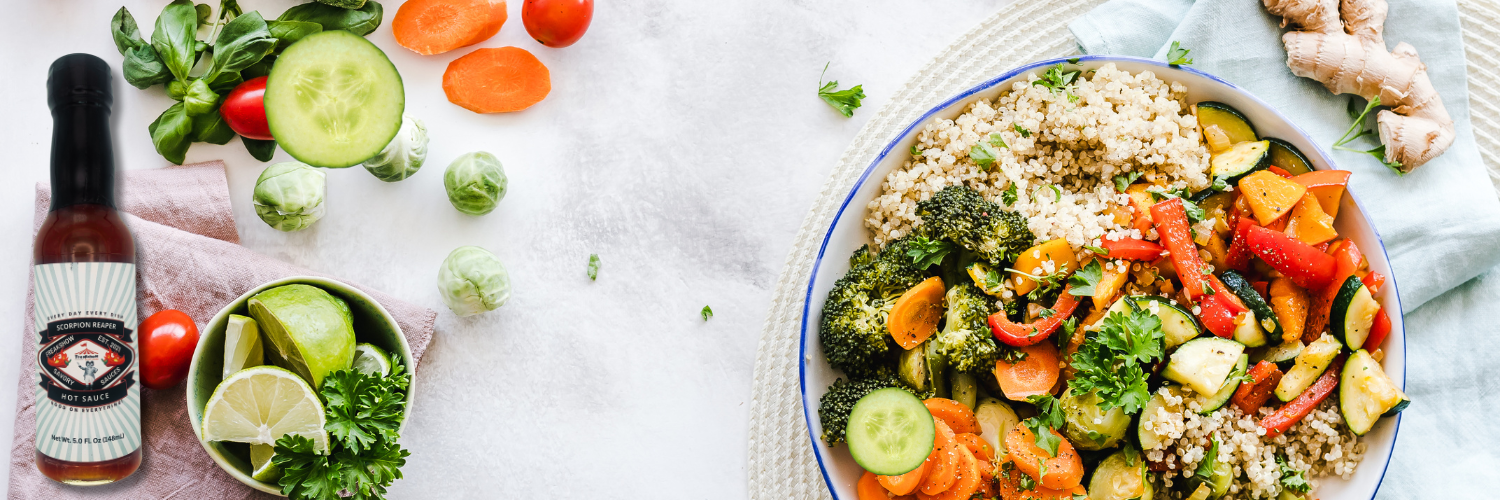
Exploring the Role of Hot Sauce in a Plant-Based Diet
Hot sauce can be a game-changer in a plant-based diet. With its spicy and tangy flavor, it can elevate the taste of plant foods and make them more enjoyable. Whether you're following a vegan diet or simply trying to incorporate more plant-based meals into your routine, hot sauce can add that extra kick and excitement to your dishes. Plus, it comes with some surprising health benefits, making it a great addition to a vegetarian diet.
The Health Benefits of Incorporating Hot Sauce
Including hot sauce in your plant-based diet can have several health benefits. Firstly, it can aid in weight management. Hot sauce contains capsaicin, a compound that boosts metabolism and helps burn calories. Additionally, hot sauce can lower the risk of certain health conditions, such as high blood pressure. The capsaicin in hot sauce can help dilate blood vessels, improving blood flow and reducing blood pressure. So, by adding hot sauce to your meals, you can not only enhance the flavor but also support your overall health, making it a valuable addition to any weight management plan.
Common Misconceptions about Hot Sauce in Diet
There are some common misconceptions about hot sauce and its impact on health. One misconception is that hot sauce can increase cholesterol levels. However, hot sauce is typically low in cholesterol and fat, making it a suitable addition to a plant-based diet. Another misconception is that hot sauce can increase the risk of certain health conditions. But research has shown that the capsaicin in hot sauce can actually have a positive impact on health, including reducing the risk of heart disease and certain types of cancer.
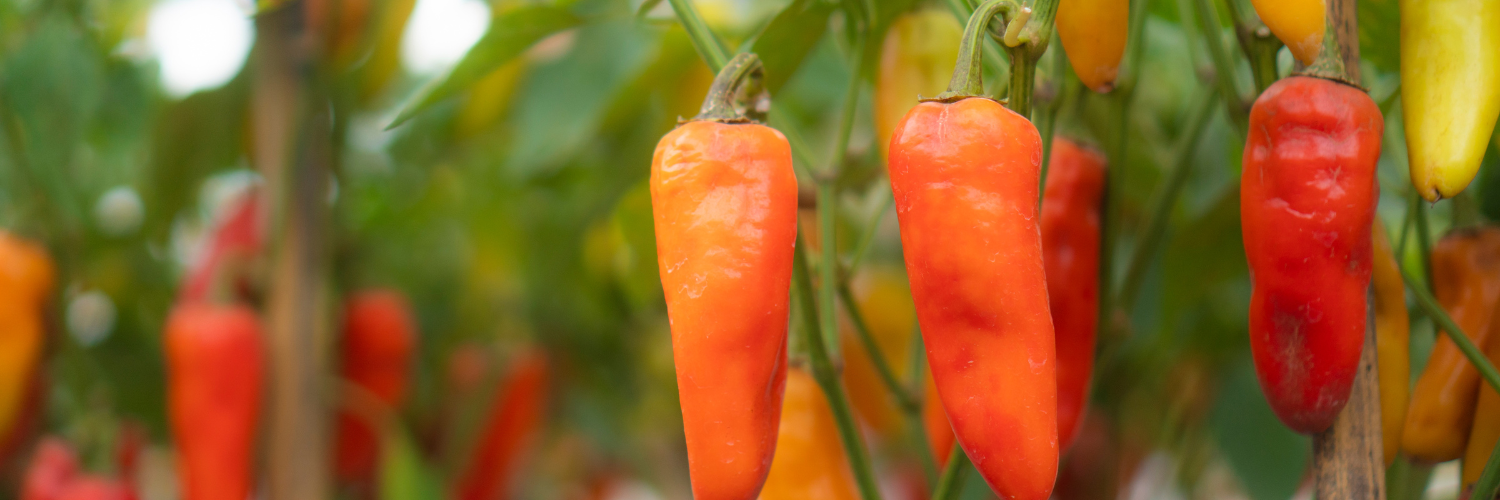
Essential Ingredients for a Spice-Friendly Plant-Based Kitchen
To create a spice-friendly plant-based kitchen, it's important to have the right ingredients on hand. Whole grains, such as brown rice and quinoa, provide a healthy base for flavorful meals. Olive oil, a staple of the Mediterranean diet, adds a rich and savory flavor to dishes. Additionally, incorporating plant-based proteins like soy products, including tofu and tempeh, and limiting red meat and animal foods, such as poultry, beef, eggs, fish, and dairy products, can add a spicy kick to your meals while also providing essential nutrients like amino acids. These essential ingredients, including soy products and avoiding red meat and dairy products, will ensure that you have the foundation for creating delicious and spicy plant-based meals that promote healthy eating. Incorporating a plant-based diet can also be a key component of healthy eating, as it encourages whole, plant-based foods and discourages meats, dairy products, and eggs as well as all refined and processed foods. If you're not sure where to start or you're having trouble following a plant-based diet, a registered dietitian and your healthcare professional can be helpful resources for creating a plan and ensuring you are getting the right nutrients, especially for those at a higher risk for prostate cancer.
Must-Have Spices and Herbs
- Basil: Known for its sweet and aromatic flavor, basil adds a fresh and vibrant taste to dishes.
- Turmeric: With its vibrant yellow color and earthy flavor, turmeric is packed with health benefits and adds a unique taste to meals.
- Black Pepper: A staple in many kitchens, black pepper adds a subtle heat and depth of flavor to dishes.
-
Recommended Hot Sauce Brands for Plant-Based Diets
When it comes to choosing hot sauce brands for a plant-based diet, it's important to ensure that they are free from dairy and animal products. Here are a few recommended hot sauce brands that are suitable for plant-based diets:
- Freakshow Savory Sauces Cajun Cayenne : Known for its flavorful blend of peppers and spices, Cajun Cayenne hot sauce is a popular choice for adding a kick to plant-based meals.
- Freakshow Savory Sauces Mango Pineapple Hot Sauce With its tangy flavor and medium heat, Mango Pineapple Hot Sauce is a versatile hot sauce that can be used in a variety of plant-based dishes.
- Freakshow Savory Sauces Scorpion Reaper : Known for its intense heat and bold flavor, Scorpion Reaper hot sauce is not for the faint of heart but adds a fiery kick to plant-based dishes for those who enjoy spicy food.
By choosing hot sauce brands that are free from animal products, you can enjoy the heat and flavor without compromising your plant-based lifestyle.
Preparing Your Kitchen for Plant-Based Cooking with a Kick
Preparing your kitchen for plant-based cooking with a kick is all about having the right equipment and storage solutions. By organizing your kitchen and ensuring you have the necessary tools, you can make plant-based cooking a breeze. From essential equipment for spicy plant-based meals to storage tips for maximizing flavor and freshness, we'll guide you through the process of setting up your kitchen for plant-based cooking with a kick.
Necessary Equipment for Spicy Plant-Based Meals
- Blender or Food Processor : These versatile appliances are perfect for creating homemade hot sauces and spice blends.
- Cast Iron Skillet: A cast iron skillet is ideal for sautéing vegetables and creating a flavorful crust on plant-based proteins.
- Spice Grinder : A spice grinder allows you to freshly grind whole spices, enhancing their flavor and aroma.
- Mortar and Pestle : This traditional tool is perfect for crushing and grinding spices, releasing their essential oils and flavors.
By having these essential tools in your kitchen, you can easily create spicy and flavorful plant-based meals.
Storage Tips for Maximizing Flavor and Freshness
- Store hot sauce in a cool, dark place to preserve its flavor and spiciness.
- Use airtight containers to store spices, protecting them from moisture and air.
- Keep spices away from direct sunlight to prevent them from losing their flavor and potency.
- Label your spices and sauce to easily identify them and ensure you use them before they expire.
By following these storage tips, you can ensure that your hot sauce and spices stay fresh and full of flavor for longer.
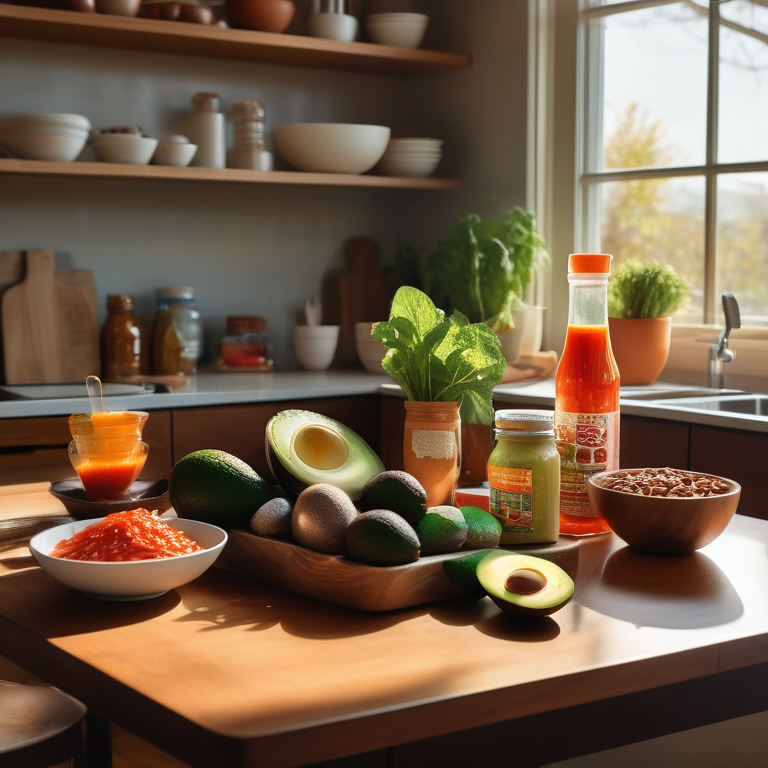
Step-by-Step Guide to Integrating Hot Sauce into Plant-Based Meals
Integrating hot sauce into plant-based meals can be a rewarding and flavorful experience. To help you get started, we've put together a step-by-step guide that will take you from mild to spicy in no time.
From starting with mild flavors to experimenting with different types of hot sauce and balancing spiciness with complementary ingredients, this guide will show you how to add the perfect amount of heat to your plant-based meals.
Step 1: Start with Mild Flavors
When integrating hot sauce into your plant-based meals, it's best to start with mild flavors. This allows you to gradually build up your tolerance for spiciness and discover the flavors that you enjoy. Here are a few tips for starting with mild hot sauces:
Choose hot sauces with a low Scoville rating , which indicates their level of spiciness .
- Start by adding a small amount of hot sauce to your dishes and gradually increase the amount as desired.
- Mix mild hot sauce with other ingredients, such as avocado or plant-based yogurt, to mellow out the heat.
By starting with mild hot sauces, you can ease your way into spicier flavors and find the perfect balance for your taste buds.
Step 2: Experiment with Different Types of Hot Sauce
- Chipotle hot sauce: Made from smoked chipotle peppers this hot sauce adds a kick and slightly sweet flavor to dishes. Try Freakshow Cajun Cayenne Hot Sauce
- Habanero hot sauce: Known for its intense heat, habanero hot sauce brings a fiery kick to any meal. Try Freakshow Habanero Honey
- Ghost pepper hot sauce: For those who enjoy extreme heat, ghost pepper hot sauce is one of the hottest options available. Try Freakshow Scorpion Reaper
By experimenting with different types of hot sauce, you can discover new flavors and find your favorites to incorporate into your plant-based meals.
Step 3: Balance Spiciness with Complementary Ingredients
To achieve the perfect balance of spiciness in your plant-based meals, it's important to pair hot sauce with complementary ingredients. Here are a few examples of how you can balance the iciness:
- Pair hot sauce with sweet ingredients like roasted sweet potatoes or caramelized onions to create a sweet and spicy flavor combination.
- Mix hot sauce with creamy ingredients like plant-based yogurt or cashew cream to create a cooling effect that balances the heat.
- Serve hot sauce alongside dishes that have a neutral or mild flavor to allow the spiciness to shine.
By balancing the spiciness of hot sauce with complementary ingredients, you can create well-rounded and flavorful plant-based meals.
Step 4: Incorporate Hot Sauce into Various Meals
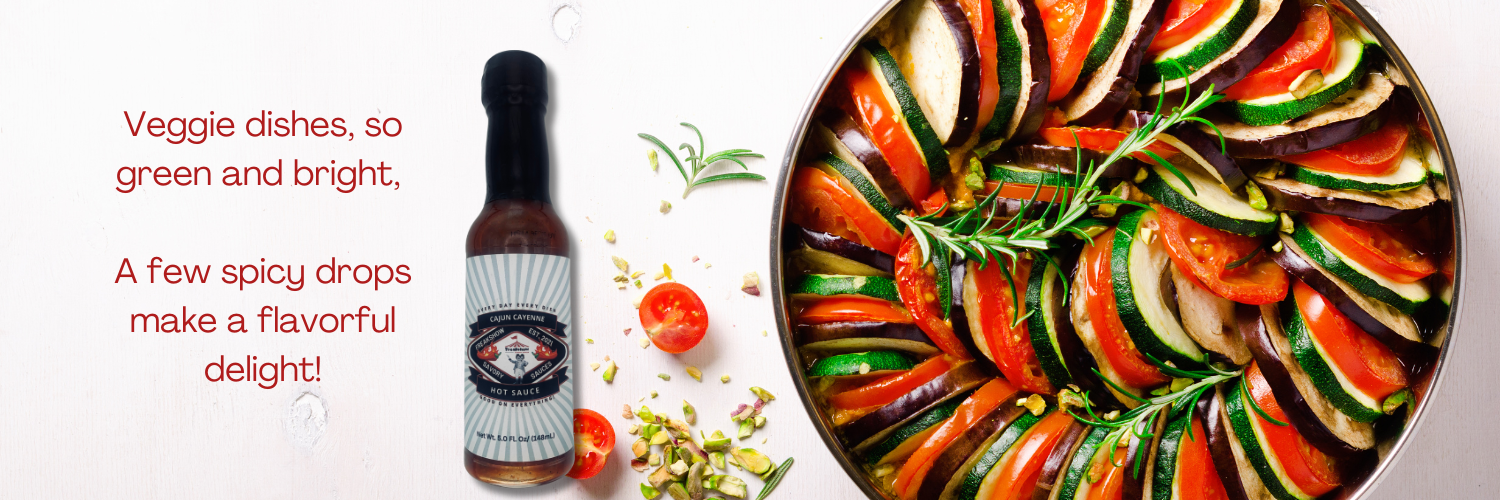
Adapting Popular Plant-Based Recipes with Hot Sauce
One of the great things about hot sauce is its versatility. It can be added to a wide range of plant-based recipes to elevate their taste and appeal. By incorporating hot sauce into your favorite plant-based dishes, you can take them to a whole new level of flavor and excitement. From breakfast to dinner, hot sauce can be the secret ingredient that makes your plant-based meals truly memorable. Not only does hot sauce add a spicy kick, but it also provides some surprising health benefits. Studies have shown that consuming spicy foods, like hot sauce, may reduce the risk of heart disease and coronary artery disease. So, why not spice up your plant-based meals with some hot sauce and also show your support for animal welfare by choosing a plant-based diet?
Breakfast Ideas: Spicy Avocado Toast
Avocado toast has become a popular breakfast option for many people, and for good reason. It's simple, delicious, and packed with nutrients. But why stop there when you can make it even more exciting with hot sauce? By adding a dash of hot sauce to your avocado toast, you can take it from ordinary to extraordinary. The creamy avocado pairs perfectly with the spicy kick of hot sauce, creating a flavor explosion in every bite. Not only does spicy avocado toast taste amazing, but it also aligns with dietary guidelines for a plant-based diet. Avocado is rich in healthy fats and fiber, while hot sauce adds flavor without adding extra calories. Plus, by choosing plant-based ingredients for your avocado toast, you're also reducing your environmental footprint. So, start your day off right with a spicy twist on this breakfast classic.
Lunch Suggestions: Zesty Quinoa Salad
Dinner Favorites: Spicy Vegan Chili
When it comes to hearty and comforting meals, nothing beats a bowl of spicy vegan chili. And if you're a fan of spicy food, adding hot sauce to your vegan chili can take it to a whole new level. Hot sauce adds an extra kick of flavor and heat, making every spoonful more exciting. Whether you're using beans, lentils, or vegetables as the base of your chili, hot sauce can enhance the overall taste and make it a standout dish. Plus, hot sauce is a healthier alternative to high-calorie toppings like cheese or sour cream. So, grab a bowl of warm and spicy vegan chili, top it with hot sauce, and enjoy a delicious and satisfying dinner that's full of flavor.
Understanding the Health Implications
As you enjoy the spicy goodness of hot sauce on your plant-based diet, it's important to understand the health implications. Studies have shown that consuming spicy foods, like hot sauce, may have positive effects on health. For example, research has found that people who consume spicy foods tend to have lower body mass index (BMI) and improved insulin sensitivity, potentially reducing the risk of chronic diseases like diabetes and cardiovascular disease, especially in combination with a plant-based diet. A plant-based diet, particularly one that includes hot sauce and is recommended by the American Diabetes Association , has also been linked to a lower risk of heart disease and improved health outcomes, including a lower BMI. However, it is important to note that less nutritious plant-based diets that include sugary drinks, fruit juices, and refined grains may still pose an increased risk of heart disease and risk of type 2 diabetes, particularly in individuals with insulin resistance and higher body weight. So, go ahead and indulge in your love for hot sauce, knowing that it may have some surprising health benefits, including a lower BMI, along with the potential for increased risk depending on your overall diet, including the risk of cardiovascular disease, insulin resistance, and body weight.
Navigating Capsaicin Sensitivity
Capsaicin is the compound responsible for the heat in hot sauce. While most people can enjoy the spicy kick of capsaicin without any issues, some individuals may be more sensitive to it. If you experience discomfort or digestive issues after consuming hot sauce, it may be a sign of capsaicin sensitivity. In such cases, it's important to listen to your body and adjust your consumption accordingly. You can start by using milder hot sauces or reducing the amount of hot sauce in your meals. It's also a good idea to monitor your blood glucose levels if you have diabetes, as capsaicin has been found to affect blood sugar levels. Remember, hot sauce has been enjoyed since ancient Greece, so it's worth finding a balance that works for you.
Balancing Flavor and Nutritional Value
When it comes to incorporating hot sauce into your plant-based diet, it's important to strike a balance between flavor and nutritional value. Hot sauce can add a burst of flavor to your meals, but it's also important to ensure that you're getting the necessary nutrients from your plant-based diet. To achieve this balance, consider using hot sauce in moderation and pairing it with nutrient-dense foods. For example, drizzle hot sauce on roasted vegetables or mix it into a homemade dressing for a nutritious and flavorful salad. By being mindful of your overall dietary choices and incorporating hot sauce as part of a well-rounded plant-based diet, you can enjoy the best of both worlds – delicious flavor and nutritional goodness.
Hot sauce adds a zesty kick to your plant-based meals, enhancing flavors and providing numerous health benefits. Don't fall for misconceptions; instead, embrace the essential ingredients for a spice-friendly kitchen. Experiment with recommended hot sauce brands and learn how to balance spiciness for a tantalizing culinary experience. From mild beginnings to spicy creations, integrate hot sauce into your breakfast, lunch, and dinner recipes. Navigate capsaicin sensitivity and savor the fusion of flavor and nutrition. So, spice up your plant-based dishes and embark on a flavorful journey with hot sauce!

